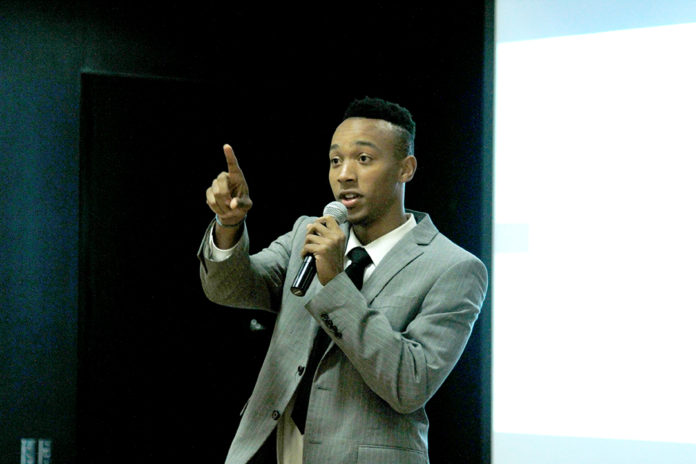
By Bailey Brammer | Staff Writer
Baylor Police Chief Brad Wigtil spoke about campus safety at the “What’s Next” gathering Tuesday evening, saying that four incidences of hate crimes have occurred at Baylor since the election, to his knowledge.
The “What’s Next?” series was organized by the department of multicultural affairs in order to discuss “issues surrounding diversity and inclusion.”
Rowlett graduate student Erin Gaddis said this series was started in light of students’ reactions to the election results, as well as reports of hate crimes occurring on campus, including the incident on Nov. 9 in which Dallas sophomore Natasha Nkhama was reportedly shoved from the sidewalk on her way to class and called a racial slur.
“There are new incidents happening every day on campus that people aren’t choosing to address,” Gaddis said. “I feel terrible …we are byproducts of a lot of oppressed and unfortunate social systems that were built against marginalized communities.”
Wigtil declined to confirm which cases in the Baylor Campus Crime and Fire Log he had referred to at the gathering.
“During his speech, Chief Wigtil referenced incidents that he heard occurred,” said Tonya Lewis, director of media communications. “The chief urges students, faculty and staff to report crimes to the police so they can have as many details as possible about the alleged crime to aid in their investigation.
Since Nov. 8, cases of harassment have been reported in the Baylor Campus Crime and Fire Log – one of which involved subjects shouting and throwing eggs at a student and another about a harassing voicemail. The harassment cases are currently under active investigation, but it was not confirmed whether these are those mentioned by Wigtil.
“The Baylor Police Department has a zero-tolerance policy for racially-motivated crimes,” Wigtil wrote to the Lariat in an email. “The department relies on partnerships between our officers and the community to identify and investigate these alleged incidents. The Baylor Police Department is diligently working the cases that have been reported. We have also employed several proactive measures to address these disturbing incidents.”
Baylor is not the only campus on which these types of crimes have occurred since the election. According to The Chronicle of Higher Education, organizations that track hate crimes, such as the Southern Poverty Law Center, have recorded more than 400 cases of such crimes on college campuses across the nation since Election Day.
In an interview with CBS “60 Minutes” on Sunday, president-elect Donald Trump told those who are committing these crimes of harassment, “Don’t do it; it’s terrible. I’m trying to bring this country together. Stop it. I will say this, and I will say right to the cameras — Stop it.”
In order to promote students’ safety, Wigtil advised Baylor to utilize the BU Guardian app and the security escort program offered by the police department. In addition to these safety measures, Wigtil has asked the Baylor community to assist the police in keeping Baylor secure.
“The Baylor Police Department again seeks the community’s assistance in partnering with us to maintain a safe campus,” Wigtil said in the email. “Faculty, staff and students can help by contacting the police department immediately if they witness or are the victim of any crime on campus.”
Another gathering in the “What’s Next?” series will happen in the Bobo Spiritual Life Center at 4 p.m. today and will be hosted by the department of multicultural affairs. Gaddis believes that Wagtail’s appearance at the “What Now?” gathering gives the Baylor community an opportunity to act for the protection of all.
“I think it will provide resources for reporting racially motivated incidents on our campus in addition to providing resources about how to contact departments on campus that are specific to students safety,” Gaddis said. “In light of conversations with the police, we’ll be providing information to students about who to go to when you’re not feeling safe, which is going to be discussed through these events.”
In spite of these incidences of harassment, Gaddis said she believes the Baylor student body has responded with a tremendous amount of support, as evidenced by the hundreds of students who walked with Nkhama on Friday morning on her way to class.
“We talk a lot about the Baylor community and what it means to be Baylor in light of these incidents, and that [walking with Nkhama] was a great display of how Baylor feels as a community about events of discrimination,” Gaddis said. “While we had to go through the storm, I think the rainbow on the other side is that we were able to see how many individuals on this campus value the lives of marginalized students.”
Staff writer Megan Rule contributed to this report.





